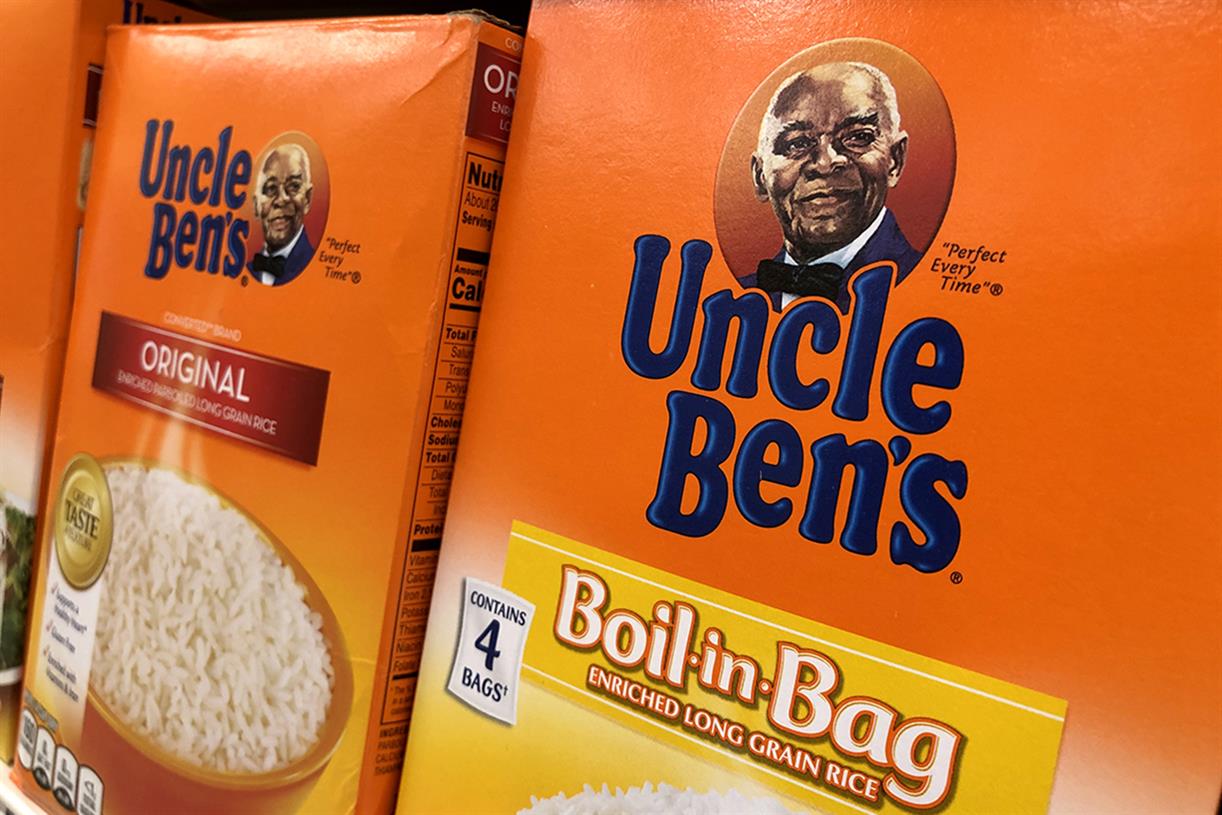Those who argue that removing the black stereotypes “Uncle Ben” and “Aunt Jemima” from the packaging of popular products would reduce diversity in the advertising industry have failed to grasp the core of the problem.
The US rice brand “Uncle Ben’s” will disappear from the shelves of supermarkets worldwide from the beginning of next year. Instead, the company plans to continue its 74-year success story as “Ben’s Original”. This decision was announced by parent company Mars Inc. on its website on 23rd September. Months of indignation preceded the rebrand – fueled by the “Black Lives Matter” movement.
The criticism had been sparked both by the brand name of the world’s leading rice brand and by the packaging’s appearance, which shows the face of a friendly, white-haired, black man dressed with a black bow tie over a white shirt, the typical appearance of a household servant in the Deep South.
According to critics, the name of the brand itself also reproduces stereotypes: prior to the US civil rights movement, the term “Uncle” was a common form of address in the Southern states for an elderly black man, often a slave and later their descendants who, unlike the white population, were not given the respect necessary to be called a “mister”.
However, many white Americans grew up with “Uncle Ben” and associate positive memories of many generations with the brand mascot. The label’s marketing strategy has paid off, as Munich brand strategist Pascal Lauscher explains: “When I see many brands next to each other on a supermarket shelf, I pick the one I like and am familiar with. [The logo is] one of the most important identifying marks of a brand – it tells a story”. But the indignation of many Americans at the forced retirement of a childhood icon is compounded by another argument: with this measure, liberals would remove a black identification figure from supermarket shelves, thus doing a disservice to diversity in the food industry.
According to Mars Inc., “Uncle Ben” is an imaginary Texas rice farmer who was lent his face by “beloved Chicago chef and waiter” Frank Brown, who worked in a fancy restaurant in Chicago in the 1940s. Frank Brown was – like “Uncle Ben” – known for his excellent cuisine and popular with his guests. A thoroughly positive portrayal, then?

Not at all. Because “Uncle Ben” also conveys the narrative of cheerful, devoted and submissive black subservience – a myth that can be traced back to the time of American slavery in the 19th century. And “Uncle Ben” is by no means an isolated case: Whether it is “Aunt Jemima”, the “mammy” figure on the pancake wrapper serving up “Old South” hospitality everywhere she goes, or the “Gold Dust Twins”, who washed and rinsed in the first half of the 20th century for the detergent company Gold Dust Washing Powder (“Let the Gold Dust Twins do your work!”) – all these characters stem from a time when black slavery was still all too present in the collective memory of “White America”. For the upper class in the Southern states, they represented a generation of formerly enslaved cooks no longer “available” to white Americans as servants. For the lower white classes, they served as stand-ins for black servants they could not afford, eliding the service of the product with the service of the black figures promoting it. The first “Aunt Jamima”, Nancy Green, was born a black slave in 1834.
“Uncle Ben” is an heir to these figures. And even though the friendly, black advertising figures have disappeared from posters and commercials, since the US civil rights movement in the 1950s and 1960s, and are confined to a passive existence on packaging; as long as they smile at us from the shelves of the supermarkets, there is a small piece of the outdated racial segregation in them.
It is, therefore, an almost cynical insinuation to complain that the rebranding of “Uncle Ben’s” means a positive black symbolic figure being removed from US food culture. For despite all the efforts of Mars Inc. to stylise “Uncle Ben” as a businessman – even being symbolically appointed chairman of the brand in 2007 – he remains first and foremost an artefact, the removal of which is a prerequisite for true diversity. As Andrew Warnes, Professor for Food Studies and African American Studies at the University of Leeds, puts it:
“It’s true that Uncle Ben himself can seem very positive and pleasant. The problem is his branding puts him on the same level as cartoon caricatures like Lucky Charms’ leprechaun or Frosties’ Tony the Tiger. He and Aunt Jemima belong to a pantheon of so-called supermarket ‘spokesservants’ that is otherwise composed of mythic creatures and talking animals. This does not correlate to what we would understand as social diversity.”
“When you make these changes, not everyone is going to like you,” says Mars Inc. chairwoman Fiona Dawson. But she could be wrong with this prognosis: In the New YouGov BrandIndex in September 2020, “Uncle Ben’s” shows rising popularity ratings in all categories. Customers seem to share the opinion of the rice brand. It is therefore more than justified to finally send “Uncle Ben” into a well-deserved retirement.
Header image credit: Campaign

